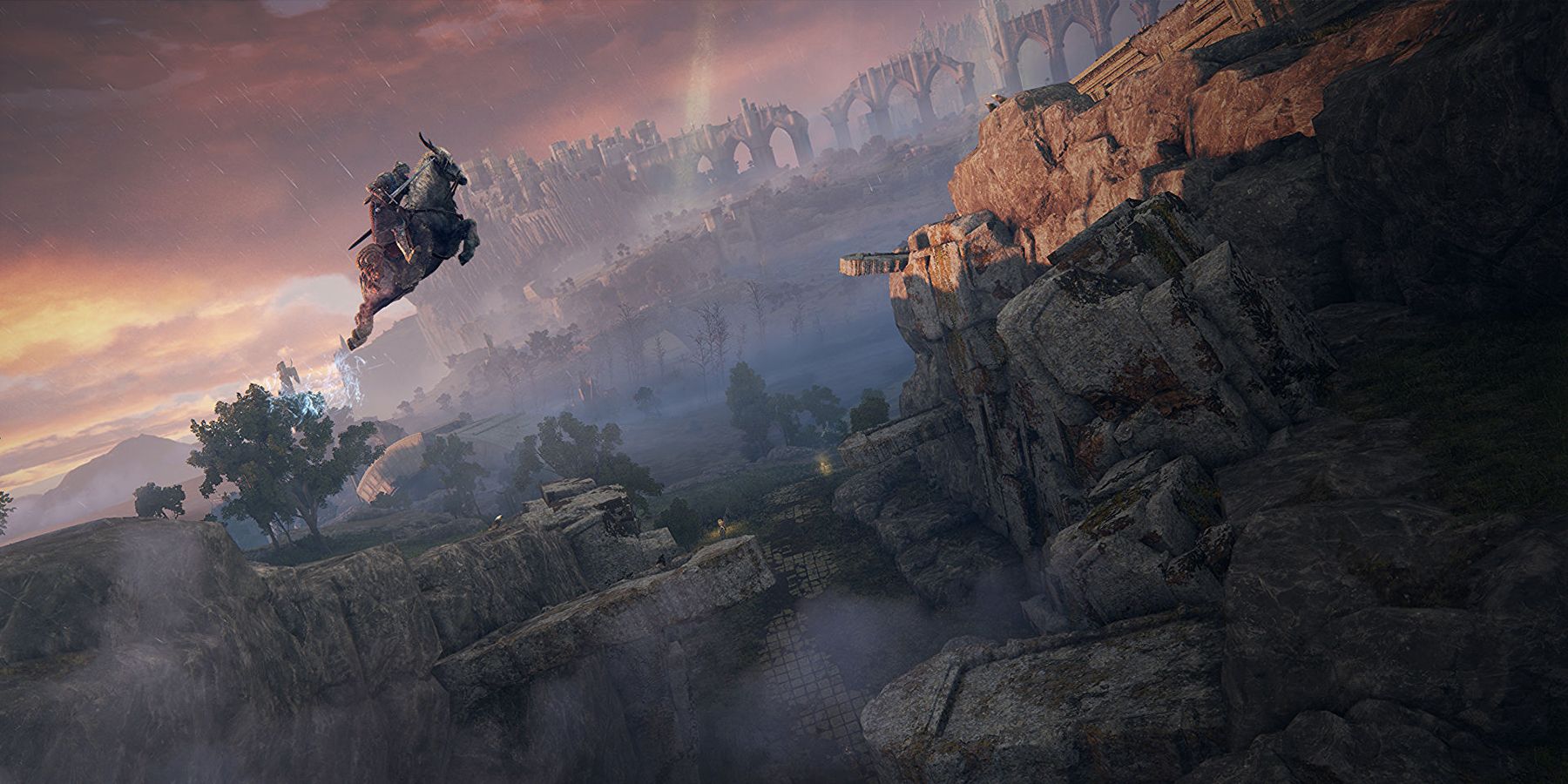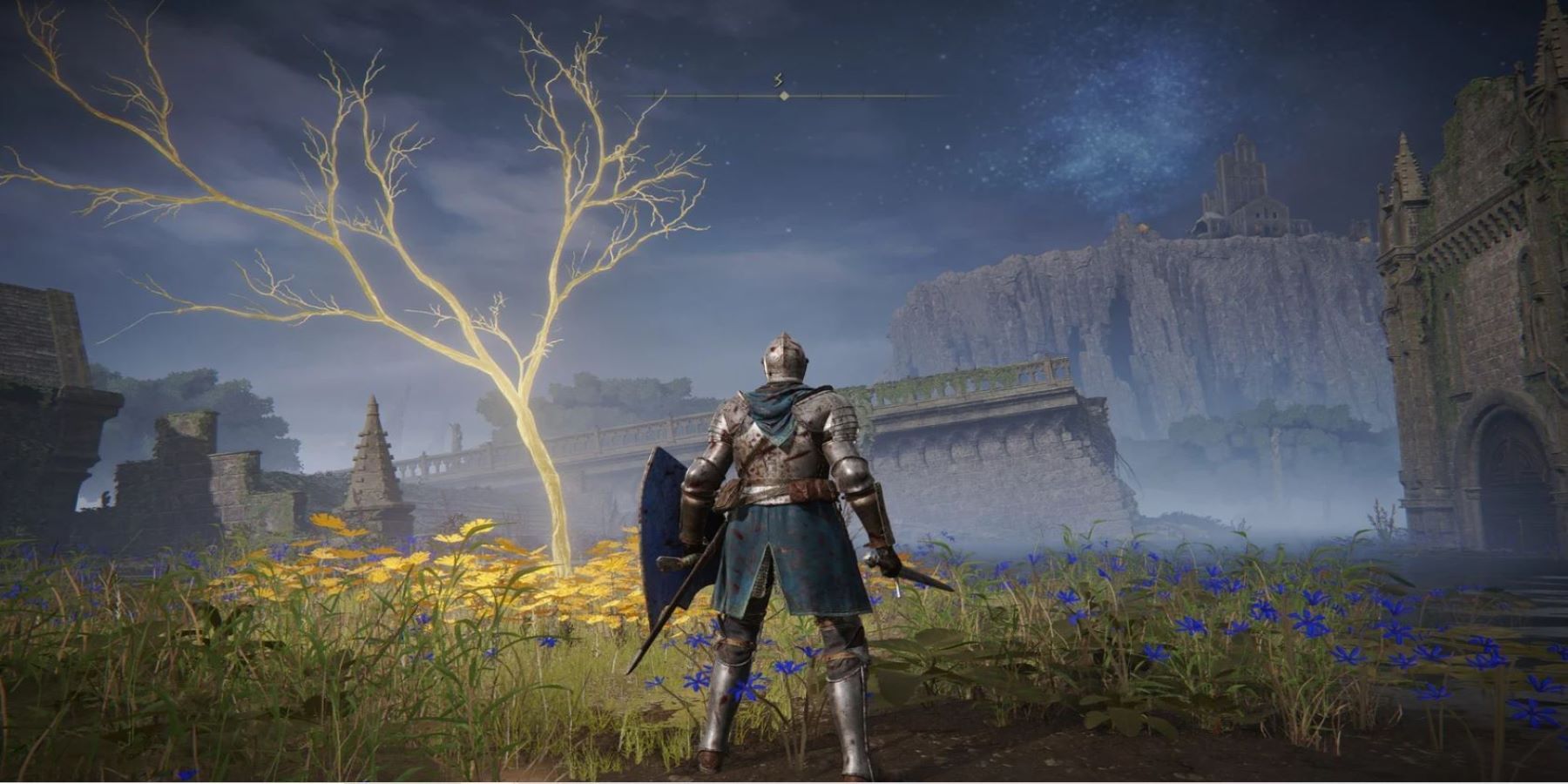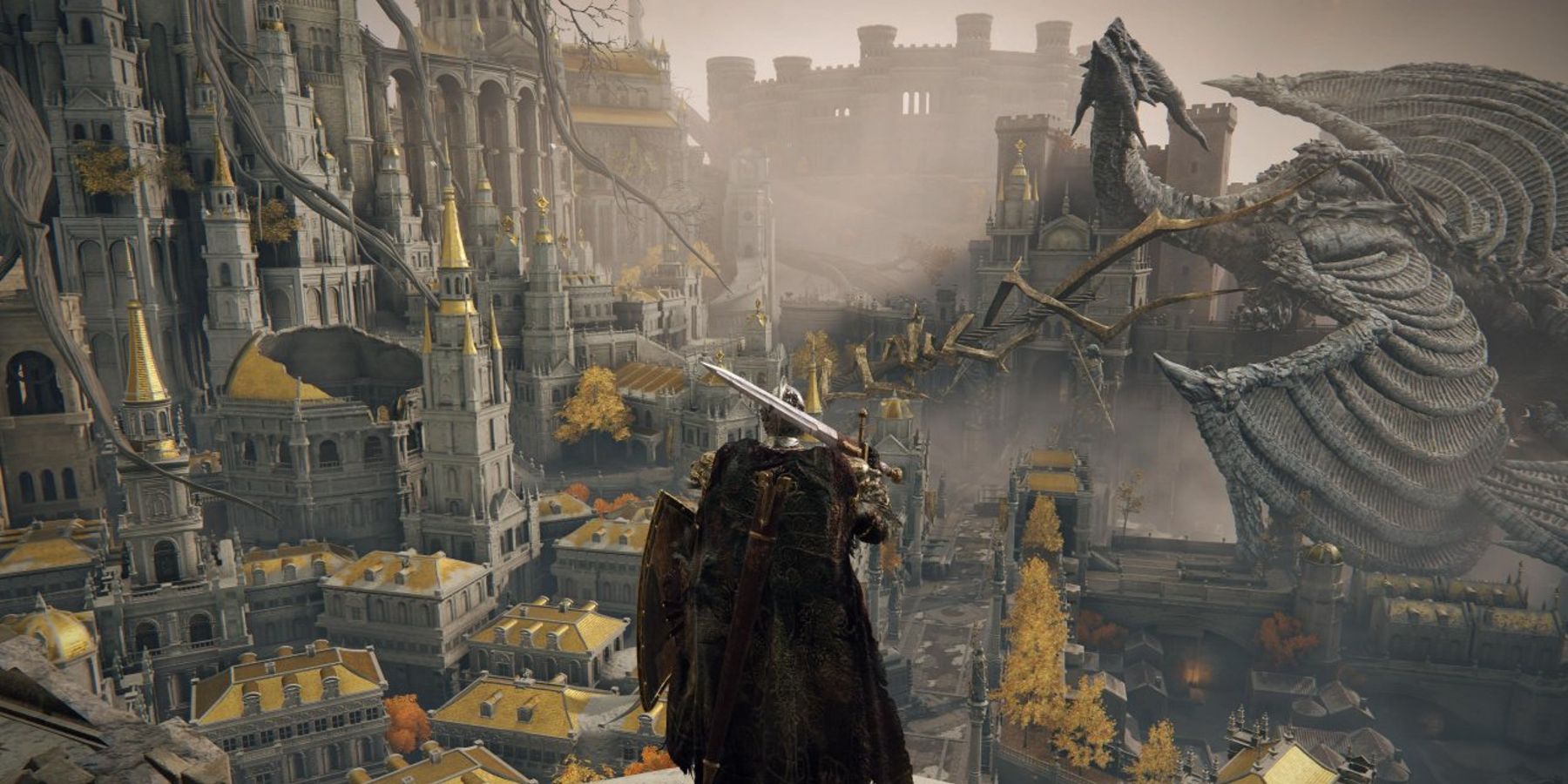Very few games see such a limelight that nearly every gamer, from all corners of the gaming industry (both as casuals or professionals), is talking about it and/or playing it. Among games like The Last of Us 2, The Witcher 3, or Grand Theft Auto 5, not many gaming enthusiasts would've anticipated that a FromSoftware game would end up in that position. Dark Souls and Soulslike games have earned a notoriety for difficulty, and yet, that hasn't steered away the average players from Elden Ring. Plenty of factors contributed to Elden Ring's massive popularity, but a big contributor to the game's longevity so far has been the transition of a Soulslike to an open-world design.
Open-world games have certainly come into their own as a unique subgenre, encompassing everything from first-person shooters to third-person action-adventure games. Different flavors of open-world games have come from a variety of developers and publishers; whether it's Ubisoft's brand of content-laden worlds filled to the brim, or Nintendo's carefully curated world in Breath of the Wild. Both developers have taken on unique approaches to open-world game design and helped inspire plenty of other open-world games after them, but Elden Ring is rightfully different. Even in its inaugural effort, FromSoftware has managed to innovate open-world game design.
Open-World Games Branch Off a Similar Foundation
Open-world games aren't all created equal. Despite both releasing in 2017, Horizon Zero Dawn and The Legend of Zelda: Breath of the Wild were two almost-diametrically opposing approaches to creating an open-world RPG. Horizon Zero Dawn places the focus more so on the diversity of inhabitants and the intrigue or immersion of the narrative within its world, while Breath of the Wild focuses more on inspiring intrigue through unique and unusual environmental design. Either way, in both examples, there are various mysteries that are laid out to players gradually over time that they can keep track of in a lengthy quest log, or through waypoints on the map.
Some open-world games make concerted efforts to mask this, but a majority of games in the subgenre are streamlined to consistently provide and track content over time. The pacing of games like Spider-Man, Assassin's Creed, or Red Dead Redemption, all similarly capture the attention of players and retain narrative momentum as the game goes on. There are ample breaks in between story moments that encourage exploration throughout the world, but eventually, these games use narrative high points to get players invested in mainlining the story. There are minute differences between them all, but most of these games follow a general open-world design formula.
What FromSoftware Does Differently with Elden Ring
Elden Ring ended up being significantly different from the open-world games before it, for the most part. Uniquely melding the obtuseness and intrigue of Dark Souls games into an open world, the game inspires wanderlust in both content and environment design, but forces players to keep track of their quests and choices themselves. Players are left to their own devices, free to follow or otherwise ignore different opportunities and potential quest lines simply because the onus is entirely on them. With few quest-related waypoints and no quest log to manage next steps, Elden Ring keeps things subtle in a way that still remains true to FromSoftware's storytelling mantra.
However, as a result of Elden Ring's open world and environment design, the game evokes a sense of wanderlust from the player similar to other RPGs like Skyrim or Breath of the Wild. Landmarks and iconography help to generally guide players along their way, similar to games like Breath of the Wild and Horizon Forbidden West, but very little is provided from characters as hints or guidance. Elden Ring does a great job in forcing the player to dedicate their attention to any side quests or activities they're invested in, taking the time to solve puzzles or use context clues to scour the Lands Between for their next steps. Otherwise, entire areas or quests can be missed.
Elden Ring's Success and Potential Influence
Despite changing up the linearity of Dark Souls, FromSoftware found a way to make it's brand-new, open-world design less derivative than its contemporaries by grounding everything in the studio's trademark mystery. That's certainly helped many newcomers look beyond the reputation of difficulty recent FromSoftware games have, despite Elden Ring featuring some of the toughest bosses of a Soulslike so far. Elden Ring has very much been a "water cooler" among gaming fans of all kinds; with such a positive reception from fans and critics that word of mouth has helped make it the best-selling FromSoftware game to date, beating Dark Souls 3's 10 million sold (as of 2020).
FromSoftware and the Dark Souls games have had a tangible impact on the gaming industry already, but Elden Ring's massive popularity is clearly something different. Open-world games are an extremely popular subgenre, and to take one of the most popular action RPGs and integrate it with a new open world design, has lead to a successful mixture of gameplay, world, and narrative. The artful subtlety of progression in Elden Ring, whether it's the non-linear exploration of the Lands Between in the overworld, or the player-reliant tracking of questlines and the narrative, Elden Ring has been a moment in games that could potentially influence future open-world adventures.
Elden Ring is available now on PC, PS4, PS5, Xbox One, and Xbox Series X/S.




